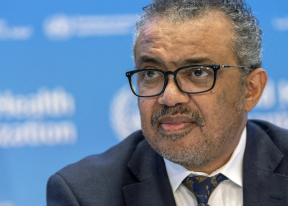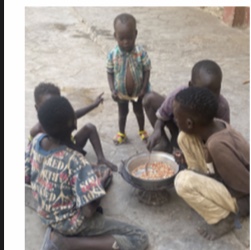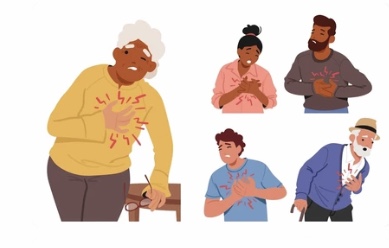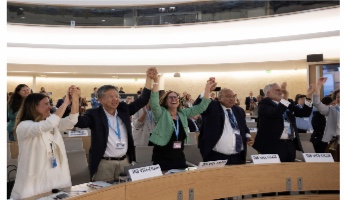Health
Global Health Leaders Urge Broadened Research Strategy To Prepare For Next Pandemic

The Coalition for Epidemic Preparedness Innovations (CEPI) and the World Health Organization (WHO) have issued a joint call for a broader research strategy to prepare for the next pandemic. The appeal, made at the Global Pandemic Preparedness Summit 2024 in Rio de Janeiro, Brazil, emphasizes the need for a more comprehensive approach to understanding and addressing the threat of emerging pathogens.
Currently, research tends to focus on individual pathogens with known pandemic potential. However, CEPI and WHO are advocating for a more expansive approach that encompasses entire families of pathogens, regardless of their perceived pandemic risk. This strategy involves using prototype pathogens as guides to develop knowledge and countermeasures that can be rapidly adapted to emerging threats.
The updated recommendation is likened to expanding the “lighted area” of knowledge, moving beyond well-studied pathogens to encompass a broader range of potential threats. This includes regions of the world with high biodiversity and limited research infrastructure, where novel pathogens may be lurking. By adopting this approach, scientists can gain a deeper understanding of how pathogens transmit and infect humans, and how the immune system responds.
The call to action is backed by a report from the WHO R&D Blueprint for Epidemics, which involved over 200 scientists from more than 50 countries. The report evaluated the science and evidence on 28 virus families and one core group of bacteria, encompassing 1652 pathogens. CEPI and WHO are urging globally coordinated, collaborative research to prepare for potential pandemics, with a focus on equitable participation from researchers around the world.
To facilitate this, WHO is establishing Collaborative Open Research Consortia (CORCs) for each pathogen family, with a WHO Collaborating Centre acting as the research hub. These CORCs will bring together researchers, developers, funders, regulators, and trial experts to promote greater research collaboration and equitable participation.
As WHO Director-General Dr Tedros Adhanom Ghebreyesus emphasized, “History teaches us that the next pandemic is a matter of when, not if. We need to come together as a global community to prepare for the next pandemic, advancing our knowledge of the many pathogens that surround us.” By adopting a broader research strategy, we can bolster our ability to swiftly respond to unforeseen variants, emerging pathogens, and unknown threats.
Health
South Sudan on Brink of Famine as 32,000 Facing Catastrophic Hunger

The escalating conflict in Upper Nile state, South Sudan, has pushed the population in two counties, Nasir and Ulang, to the edge of famine.
According to the Integrated Food Security Phase Classification (IPC) report, 11 out of 13 counties in Upper Nile state are facing emergency levels of hunger, with 32,000 people in Catastrophic (IPC Phase 5) hunger conditions.
The conflict, which began in March, has led to intense clashes and aerial bombardments, resulting in large-scale displacement and destruction of homes and livelihoods.
Humanitarian access in conflict-affected areas remains severely constrained, leaving vulnerable communities without vital support during the lean season.
The IPC report highlights that 66% of Upper Nile state’s population, approximately 1.04 million people, are facing Crisis (IPC Phase 3), Emergency (IPC Phase 4), or Catastrophic (IPC Phase 5) levels of hunger. Malnutrition is surging among children and mothers, exacerbated by a cholera outbreak.
Humanitarian agencies are sounding the alarm, warning that the time to act is passing quickly for thousands of families in Upper Nile who are on the brink of catastrophe.
“Conflict doesn’t just destroy homes and livelihoods, it tears communities apart, cuts off access to markets, and sends food prices spiraling upward,” said Mary-Ellen McGroarty, Country Director and Representative for the United Nations World Food Programme (WFP) in South Sudan.
The international community must respond with urgency and solidarity to prevent famine and save lives.
Health
Early Signs of Stroke You Should Watch Out For

In today’s fast-paced world, especially for Africans in the diaspora balancing work, family, and the pressures of daily life, health can sometimes take a back seat.
We can get carried away by Yet, few health conditions demand as much urgency and awareness as a stroke.
Often sudden and life-threatening, a stroke can have long-term consequences but early recognition of its warning signs can make all the difference.
A stroke occurs when the blood supply to a part of the brain is cut off, either due to a blockage or a burst blood vessel.
When this happens, brain cells begin to die within minutes. According to health experts, acting fast is crucial, as immediate medical attention can greatly reduce the risk of death or a permanent disability.
One of the most important things anyone can do is to learn the early signs of a stroke.
These typically include sudden numbness or weakness in the face, arm, or leg, especially on one side of the body.
Difficulty speaking or understanding speech, blurred or lost vision in one or both eyes, dizziness, and a sudden severe headache with no clear cause are also red flags.
To help people remember these symptoms, doctors recommend remembering face drooping, arm weakness, speech difficulty and time to call for emergency services, in order to save a loved one.
For members of the African and Black diaspora, the stakes are particularly high. Research has shown that people of African descent have a higher risk of hypertension which is a major cause of stroke, as well as other underlying conditions like diabetes.
Lifestyle changes in new environments, such as increased stress, poor diet, or sedentary habits can make this risk become even greater.
Preventing stroke begins with awareness and action. Activities like regular health check-ups, managing blood pressure and cholesterol levels, staying physically active, eating a balanced diet, and reducing alcohol and tobacco use are crucial steps to take in preventing this illness.
Equally important is knowing when something is not right and seeking help immediately.
In our communities, where stories of sudden illness are very common, education about stroke needs to become part of everyday conversations.
It is not just a medical issue, it is a lifestyle concern, a family issue, and a community responsibility.
Health
World Health Organization Adopts First-Ever Pandemic Agreement

The World Health Organization’s (WHO) Member States have formally adopted the world’s first Pandemic Agreement, marking a significant milestone in the global response to pandemics.
The agreement, adopted by consensus at the 78th World Health Assembly, aims to make the world safer and more equitable in response to future pandemics.
WHO Director-General, Dr. Tedros Ghebreyesus, hailed the adoption of the Pandemic Agreement as a “victory for public health, science, and multilateral action.”
He emphasized that the agreement will enable the international community to better protect the world from future pandemic threats and ensure that citizens, societies, and economies are not left vulnerable to suffer losses like those endured during COVID-19.
The Pandemic Agreement sets out principles, approaches, and tools for better international coordination across a range of areas, including equitable access to vaccines, therapeutics, and diagnostics.
The agreement emphasizes the importance of ensuring timely and equitable access to life-saving pandemic-related health products while respecting national sovereignty.
The adoption of the Pandemic Agreement marks the beginning of a new era of global health cooperation.
An Intergovernmental Working Group will be established to develop a Pathogen Access and Benefit Sharing (PABS) system, which will be considered at next year’s World Health Assembly. After 60 ratifications, the agreement will enter into force.
Dr. Teodoro Herbosa, Secretary of the Philippines Department of Health and President of this year’s World Health Assembly, noted that now that the Agreement has been brought to life, all parties must act with the same urgency to implement its critical elements, including systems, to ensure equitable access to life-saving pandemic-related health products.
The Pandemic Agreement offers a once-in-a-lifetime opportunity to build on lessons learned from the COVID-19 pandemic and ensure that people worldwide are better protected if a future pandemic emerges.
The agreement’s emphasis on equitable access to health products, national sovereignty, and international cooperation will help to ensure that the world is better prepared to face future pandemic threats.
-

 News1 week ago
News1 week agoPutin Condemns U.S. Strikes on Iran, Warns of Escalating Global Danger
-

 News6 days ago
News6 days agoNigeria’s Consul General in New York Receives Diaspora Watch Publisher, Boniface Ihiasota
-
Features6 days ago
Guyana, CDF Sign US$18m Agreement for Agricultural Development
-

 Business6 days ago
Business6 days agoEU, Liberia Sign €25m Agreement to Boost Private Sector Development
-

 News1 week ago
News1 week agoIsrael Bombs Iran’s Evin Prison as U.S. Joins Conflict: Tensions Soar in Middle East
-

 Milestone6 days ago
Milestone6 days agoAisha Braveboy Sworn in as Prince George’s County Executive, Appoints New Police Chief










